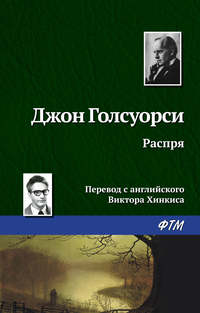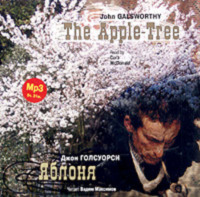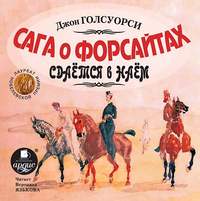 полная версия
полная версияAnother Sheaf
Instruction of the British farmer begins with the fortification of his will by confidence. When you ask him to plough up grass land, to revise the rotation of his crops, to grow wheat, to use new brands of corn, to plough with tractors, and to co-operate, you are asking a man deeply and deservedly cynical about your intentions and your knowledge. He has seen wheat fail all his life, he has seen grass succeed. Grass has saved him, and now he is asked to turn his back on it. Little wonder that he curses you for a meddling fool. "Prove it!" he says – and you cannot. You could if you had it in your power to show him that your guarantee of a fair price for wheat was "good as the Bank." Thus, the first item of instruction to the farmer consists in the definite alteration of public opinion towards the land by adoption of the sine quâ non that in future we will feed ourselves. The majority of our farmers do not think their interests are being served by the present revolution of farming. Patriotic fear for the country, and dread of D.O.R.A. – not quite the same thing – are driving them on. Besides, it is the townsmen of Britain, not the farmers, who are in danger of starvation, not merely now, but henceforth for evermore until we feed ourselves. If starvation really knocked at our doors, the only houses it would not enter would be the houses of those who grow food. The farmers in Germany are all right; they would be all right here. The townsmen of this country were entirely responsible for our present condition, and the very least they can do is to support their own salvation. But while with one corner of their mouths the towns are now shouting: "Grow food! Feed us, please!" with the other they are still inclined to add: "You pampered industry!" Alas! we cannot have it both ways.
The second point I want to make about instruction is the importance of youth. In America, where they contemplate a labour shortage of 2,000,000 men on their farms, they are using boys from sixteen to twenty-one, when their military age begins. Can we not do the same here? Most of our boys from fifteen to eighteen are now on other work. But the work they are doing could surely be done by girls or women. If we could put even a couple of hundred thousand boys of that age on the land it would be the solution of our present agricultural labour shortage, and the very best thing that could happen for the future of farming. The boys would learn at first hand; they would learn slowly and thoroughly; and many of them would stay on the land. They might be given specialised schooling in agriculture, the most important schooling we can give our rising generation, while all of them would gain physically. By employing women on the land, where we can employ boys of from fifteen to eighteen, we are blind-alleying. Women will not stay on the land in any numbers; few will wish that they should. Boys will, and every one would wish that they may.
The third point I want to make concerns the model farm. If we are to have resettlement on any large scale and base our farming on crops in future, the accessibility of the best practical advice is an absolute essential.
Till reformed education begins to take effect, the advice and aid of "model" farmers should be available in every district. Some recognised diploma might with advantage be given to farmers for outstanding merit and enterprise. No instruction provided from our advisory agricultural councils or colleges can have as much prestige and use in any district as the advice of the leading farmer who had been crowned as a successful expert. It is ever well in this country to take advantage of the competitive spirit which lies deep in the bones of our race. To give the best farmers a position and prestige to which other farmers can aspire would speed up effort everywhere. We want more competition in actual husbandry and less competition in matters of purchase and sale. And that brings us to the vital question of co-operation.
V
CO-OPERATION (SMALL HOLDINGS)
"The most important economic question for all nations in the past has been, and in the future will be, the question of a sufficient food supply, independent of imports.
"It is doubtful whether the replacement of German agriculture on a sound basis in the last ten years is to be ascribed in a greater measure to technical advance in agricultural methods, or to the development of the co-operative system. Perhaps it would be right to say that for the large farms it is due to the first, and for the smaller farms (three quarters of the arable land in Germany) to the second. For it is only through co-operation that the advantages of farming on a large scale are made possible for smaller farmers. The more important of those advantages are the regulated purchase of all raw materials and half-finished products (artificial manures, feeding stuffs, seeds, etc.), better prices for products, facilities for making use, in moderation, of personal credit at a cheap rate of interest, together with the possibility of saving and putting aside small sums of interest; all these advantages of the large farmer have been placed within the reach of the small farmers by local co-operative societies for buying, selling, and farming co-operatively, as well as by saving and other banks, all connected to central associations and central co-operative societies.
"Over two million small farmers are organised in Germany on co-operative lines."5
Nearly two million small farmers co-operated in Germany; and here-how many? The Registrar returns the numbers for 1916 at 1,427 small holders.
In the view of all authorities co-operation is essential for the success of small farmers and small holders; but it needs no brilliant intellect, nor any sweep of the imagination to see a truth plainer than the nose on a man's face.
"There is some reason to hope," says Mr. Middleton, "that after the war agriculturalists will show a greater disposition to co-operate; but we cannot expect co-operation to do as much for British agriculture as it has done for the Germans, who so readily join societies and support co-operative efforts."
So much the worse for us!
The Agricultural Organisation Society, the officially recognised agency for fostering the co-operative principle, has recently formed an Agricultural Wholesale Society with a large subscribed capital, for the purchase of all farming requirements, and the marketing of produce, to be at the disposal of all co-operated farmers, small holders, and allotment holders, whose societies are affiliated to the Agricultural Organisation. Society. This is a step of infinite promise. The drawing together of these three classes of workers on the land is in itself a matter of great importance. One of the chief complaints of small holders in the past has been that large holders regard them askance. The same, perhaps, applies to the attitude of the small holder to the allotment holder. That is all bad. Men and women on the land should be one big family, with interests, and sympathies in common and a neighbourly feeling.
A leaflet of the Agricultural Organisation Society thus describes a certain co-operative small holdings' society with seventeen members renting ninety acres. "It owns a team of horses, cart, horse-hoe, plough, ridger, harrow, Cambridge roller, marker; and hires other implements as required; it insures, buys, and sells co-operatively. This year (for patriotic reasons) wheat and potatoes form the chief crop, with sufficient oats, barley, beans and mangolds to feed the horses and the pigs, of which there are many. The society last year marketed more fat pigs than the rest of the village and adjoining farms put together.
"The land, on the whole, is undoubtedly better cultivated and cropped, and supports a far larger head of population per acre than the neighbouring large farms." Even allowing that the first statement may be disputed, the last is beyond dispute, and is the important thing to bear in mind about small holdings from the national point of view; for every extra man and woman on the land is a credit item in the bank book of the nation's future.
"In addition," says the leaflet, "there is a friendly spirit prevalent among the members, who are always willing to help each other, and at harvest time combine to gather in the crops."
With more land, not only some, but all the members of this little society could support themselves entirely on their holdings. "The members value their independence and freedom, but recognise the value of combined action and new ideas."
Now this is exactly what we want. For instance, these members have found out that the profit on potatoes when home-grown farmyard manure alone was used was only 14s. 6d. per acre; and that a suitable combination of artificial manures gave a profit of £14 12s. 6d. an acre, with double the yield. Mutual help and the spread of knowledge; more men and women on the land – this is the value of the agricultural co-operative movement, whose importance to this country it is impossible to over-estimate.
From letters of small holders I take the following remarks: —
"Of course it's absolutely necessary that the prospective small holder should have a thorough knowledge of farming."
"In regard to implements, you need as many of some sorts on a small holding as you do on a large farm. A small man can't afford to buy all, so he has to work at a disadvantage… Then as to seeds, why not buy them wholesale, and sell them to the small holder, also manures, and many other things which the small holder has to pay through the nose for."
"Men with no actual knowledge of land work would rarely succeed whatever financial backing they might receive."
"About here small holdings are usually let to men who have been tradesmen or pitmen, and they of course cannot be expected to make the most of them."
"When you restrict a farmer to 50 acres he ought to be provided with ample and proper buildings for every kind of stock he wishes to keep."
These few remarks, which might be supplemented ad libitum, illustrate the difficulties and dangers which beset any large scheme of land settlement by our returning soldiers and others. Such a scheme is bound to fail unless it is based most firmly on co-operation, for, without that, the two absolute essentials – knowledge, with the benefit of practical advice and help; and assistance by way of co-operative finance, and co-operatively-owned implements, will be lacking.
Set the returning soldier down on the land to work it on his own and, whatever his good-will, you present the countryside with failure. Place at his back pooled labour, monetary help and knowledge, and, above all, the spirit of mutual aid, and you may, and I believe will, triumph over difficulties, which are admittedly very great.
VI
CO-OPERATION (ALLOTMENTS)
The growth of allotment gardens is a striking feature of our agricultural development under stimulus of the war. They say a million and a half allotment gardens are now being worked on. That is, no doubt, a papery figure; nor is it so much the number, as what is being done on them, that matters. Romance may have "brought up the nine-fifteen," but it will not bring up potatoes. Still, these new allotments without doubt add very greatly to our food supply, give hosts of our town population healthy work in the open air, and revive in them that "earth instinct" which was in danger of being utterly lost. The spade is a grand corrective of nerve strain, and the more town and factory workers take up allotment gardens, the better for each individual, and for us all as a race.
They say nearly all the ground available round our towns has already been utilised. But DORA, in her wild career, may yet wring out another hundred thousand acres. I wish her well in this particular activity. And the Government she serves with such devotion will betray her if, when DORA is in her grave – consummation devoutly to be wished – her work on allotment gardens is not continued. There is always a ring of land round a town, like a halo round the moon. As the town's girth increases, so should that halo; and even in time of peace, larger and larger, not less and less, should grow the number of town dwellers raising vegetables, fruit and flowers, resting their nerves and expanding lungs and muscles with healthy outdoor work.
"In no direction is the co-operative principle more adaptable or more useful than in the matter of Allotment Associations."
There are now allotment associations in many parts of the country. One at Winchester has over 1,000 tenant members. And round the great manufacturing towns many others have been formed.
To illustrate the advantages of such co-operation, let me quote a little from the Hon. Secretary of the Urmston Allotments Association, near Manchester: "Though the Urmston men had foremost in their mind the aim of producing payable crops … they determined that their allotments should be convenient and comfortable to work, and pleasing to look upon… It is a delusion often found among novices that ordinary ground takes a long time to get into decent order; and is an expensive business. But enlightened and energetic men working together can do wonderful things. They did them at Urmston. The ground was only broken up in March, 1916, but in the same season splendid crops of peas, potatoes and other vegetables were raised by the holders, the majority of whom had little or no previous experience of gardening… So as to deal with the main needs of the members co-operatively in the most effective manner a Trading Committee was appointed to advise and make contracts… Manure, lime, salt, and artificial manures have been ordered collectively; and seeds and other gardening requisites arranged for at liberal discounts."
Besides all this the association has fought the potato wart disease; had its soil analyzed; educated its members through literature and lectures; made roads and fences; looked after the appearance of its plots, and encouraged flower-growing. Finally, a neighbourly feeling of friendly emulation has grown up among its members. And this is their conclusion: "The advantages of co-operation are not confined to economy in time and money, for the common interest that binds all members to seek the success of the Association, also provides the means of developing and utilising the individual talents of the members for communal and national purposes."
They speak, indeed, like a book, and every word is true – which is not always the same thing.
The Agricultural Organization Society gives every assistance in forming these associations; and the more there are of them the greater will be the output of food, the strength and knowledge of the individual plot-holder, the stability of his tenure, and the advantage of the nation.
Mistrust and reserve between workers on the land, be they large farmers, small farmers, or plotholders is the result of combining husbandry with the habits and qualities of the salesman. If a man's business is to get the better of his neighbours on market days, it will be his pleasure to doubt them on all other days.
The co-operative system, by conducting purchase and sale impersonally, removes half the reason and excuse for curmudgeonery, besides securing better prices both at sale and purchase. To the disgust of the cynic, moral and material advantage here go hand in hand. Throughout agriculture co-operation will do more than anything else to restore spirit and economy to an industry which had long become dejected, suspicious and wasteful; and it will help to remove jealousy and distrust between townsmen and countrymen. The allotment holder, if encouraged and given fixity of tenure, or at all events the power of getting fresh ground if he must give up what he has – a vital matter – will become the necessary link between town and country, with mind open to the influence of both. The more he is brought into working contact with the small holder and the large farmer the better he will appreciate his own importance to the country and ensure theirs. But this contact can only be established through some central body, and by use of a wholesale society for trading and other purposes, such as has just been set up for all classes of co-operated agriculturalists.
Addressing a recent meeting of its members, the Chairman of the Agricultural Organisation Society, Mr. Leslie Scott, spoke thus: – "We have to cover the country" (with co-operative societies), "and we have got to get all the farmers in! If we can carry out any such scheme as this, which will rope in all the farmers of the country, what a magnificent position we shall be in! You will have your great trading organisation with its central wholesale society! You will have your organisation side with the Agricultural Organisation Society at the centre… You will be able to use that side for all the ancillary purposes connected with farming; and do a great deal in the way of expert assistance. And through your electing the Board of Governors of the Agricultural Organisation Society, with the provincial branch Committees, you will have what is in effect a central Parliament in London… You will be able to put before the country, both locally and here in London, the views of the farming community, and, those views will get from Government Departments an attention which the farming industry in the past has failed to get. You will command a power in the country."
And in a letter to Mr. Scott, read at the same meeting, the present Minister of Agriculture had this to say about co-operation:
"Farming is a business in which as in every other industry union is strength… Every farmer should belong to a co-operative society… Small societies like small farmers, must" (in their turn) "co-operate… The word 'farmers' is intended to include all those who cultivate the land. In this sense allotment holders are farmers, and I trust that the union of all cultivators of the land in this sense will help to bridge the gap between town and country."
That townsman and countryman should feel their interests to be at bottom the same goes to the root of any land revival.
VII
VALEDICTORY
"There are many who contend that the nation will never again allow its rural industry to be neglected and discouraged as it was in the past; that the war has taught a lesson which will not soon be forgotten. This view of the national temperament is considered by others to be too confident. It is the firm conviction of this school that the consumer will speedily return to his old habit of indifference to national stability in the matter of food, and that Parliament acting at his bidding, will manifest equal apathy."
These words, taken from a leader in The Times of February 11th, 1918, bring me back to the starting point of these ragged reflections. There will be no permanent stablishing of our agriculture, no lasting advance towards safety and health, if we have not vision and a fixed ideal. The ruts of the past were deep, and our habit is to walk along without looking to left or right. A Liberalism worthy of the word should lift its head and see new paths. The Liberalism of the past, bent on the improvement of the people and the growth of good-will between nations, forgot in that absorption to take in the whole truth. Fixing its eyes on measures which should redeem the evils of the day, it did not see that those evils were growing faster than all possible remedy, because we had forgotten that a great community bountifully blessed by Nature has no business to exist parasitically on the earth produce of other communities; and because our position under pure free trade, and pure industrialism, was making us a tempting bait for aggression, and retarding the very good-will between nations which it desired so earnestly.
The human animal perishes if not fed. We have gone so far with our happy-go-lucky scheme of existence that it has become necessary to remind ourselves of that. So long as we had money we thought we could continue to exist. Not so. Henceforth till we feed ourselves again, we live on sufferance, and dangle before all eyes the apple of discord. A self-supporting Britain, free from this carking fear, would become once more a liberalising power. A Britain fed from overseas can only be an Imperialistic Junker, armed to the teeth, jealous and doubtful of each move by any foreigner; prizing quantity not quality; indifferent about the condition of his heart. Such a Britain dare not be liberal if it will.
The greatest obstacle to a true League of Nations, with the exception of the condition of Russia, will be the condition of Britain, till she can feed herself.
I believe in the principle of free trade, because it forces man to put his best leg foremost. But all is a question of degree in this world. It is no use starting a donkey, in the Derby, and bawling in its ear: "A fair field and no favour!" especially if all your money is on the donkey. All our money is henceforth on our agriculture till we have brought it into its own. And that can only be done at present with the help of bounty.
The other day a Canadian free trader said: "It all depends on what sort of peace we secure; if we have a crushing victory, I see no reason why Britain should not go on importing her food."
Fallacy – politically and biologically! The worst thing that could happen to us after the war would be a sense of perfect security, in which to continue to neglect our agriculture and increase our towns. Does any man think that a momentary exhaustion of our enemy is going to prevent that huge and vigorous nation from becoming strong again? Does he believe that we can trust a League of Nations – a noble project, for which we must all work – to prevent war till we have seen it successful for at least a generation? Does he consider that our national physique will stand another fifty years of rampant industrialism without fresh country stocks to breed from? Does he suppose that the use of the air and the underparts of the sea is more than just beginning?
Politically, our independence in the matter of food is essential to good will between the nations. Biologically, more country life is essential to British health. The improvement of town and factory conditions may do something to arrest degeneration, but in my firm conviction it cannot hope to do enough in a land where towns have been allowed to absorb seven-ninths of the population, and – such crowded, grimy towns!
Even from the economic point of view it will be far cheaper to restore the countryside and re-establish agriculture on a paying basis than to demolish and rebuild our towns till they become health resorts. And behind it all there is this: Are we satisfied with the trend of our modern civilisation? Are we easy in our consciences? Have not machines, and the demands of industry run away with our sense of proportion? Grant for a moment that this age marks the highest water so far of British advance. Are we content with that high-water mark? In health, happiness, taste, beauty, we are surely far from the ideal. I do not say that restoration of the land will work a miracle; but I do say that nothing we can do will benefit us so potently as the redress of balance between town and country life.
We are at the parting of the ways. The war has brought us realisation and opportunity. We can close our eyes again and drift, or we can move forward under the star of a new ideal. The principle which alone preserves the sanity of nations is the principle of balance. Not even the most enraged defender of our present condition will dare maintain that we have followed out that principle. The scales are loaded in favour of the towns, till they almost touch earth; unless our eyes are cleared to see that, unless our will is moved to set it right, we shall bump the ground before another two decades have slipped away, and in the mud shall stay, an invitation to any trampling heel.
I have tried to indicate general measures and considerations vital to the resettlement of the land, conscious that some of my readers will have forgotten more than I know, and that what could be said would fill volumes. But the thought which, of all others, I have wished to convey is this: Without vision we perish. Without apprehension of danger and ardour for salvation in the great body of this people there is no hope of anything save a momentary spurt, which will die away, and leave us plodding down the hill. There are two essentials. The farmer – and that means every cultivator of the land – must have faith in the vital importance of his work and in the possibility of success; the townsman must see and believe that the future of the country, and with it his own prosperity, is involved in the revival of our agriculture and bound up with our independence of oversea supply. Without that vision and belief in the townsman the farmer will never regain faith, and without that faith of the farmer agriculture will not revive.









